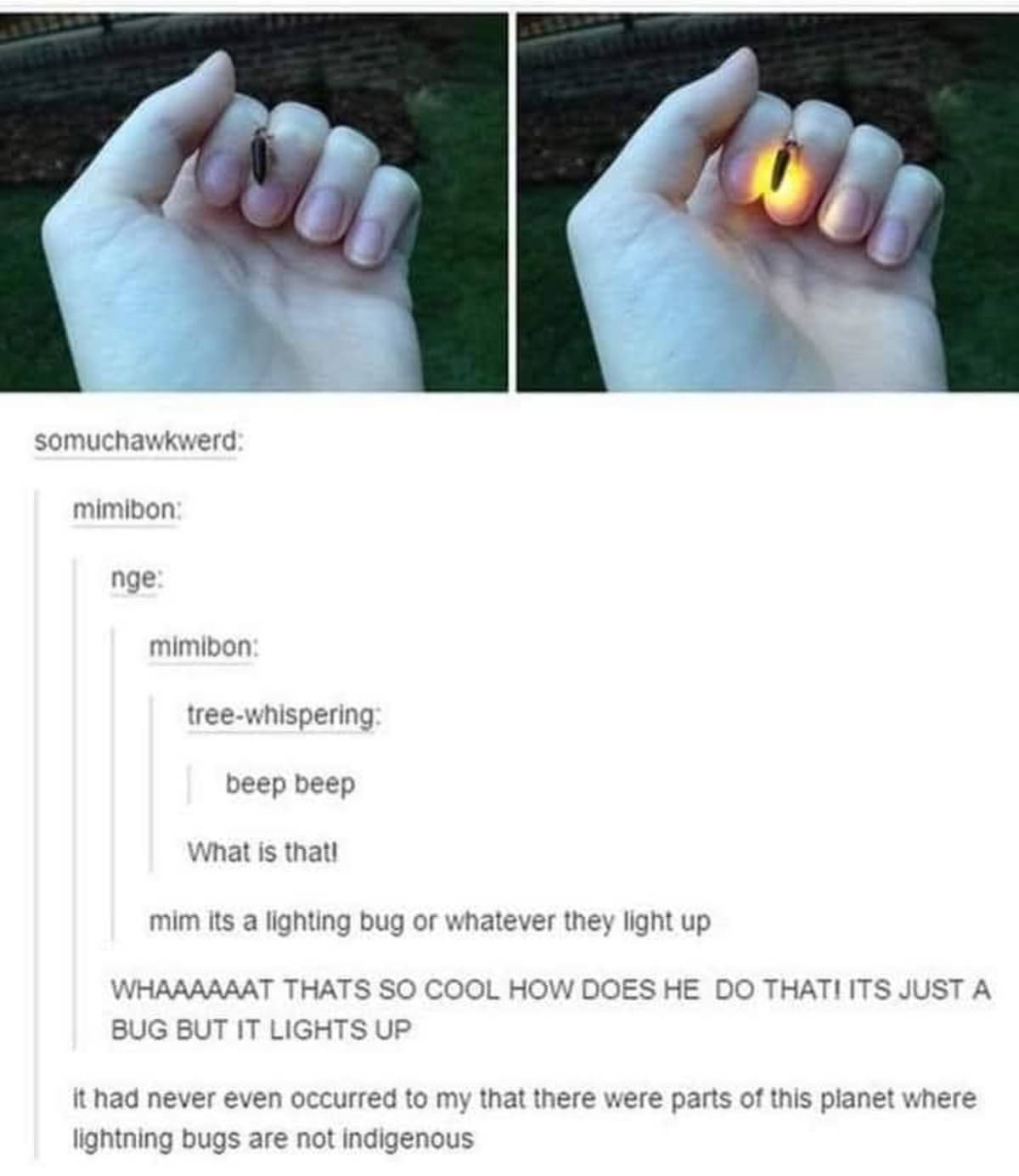this post was submitted on 06 May 2024
967 points (98.8% liked)
Science Memes
11764 readers
2429 users here now
Welcome to c/science_memes @ Mander.xyz!
A place for majestic STEMLORD peacocking, as well as memes about the realities of working in a lab.

Rules
- Don't throw mud. Behave like an intellectual and remember the human.
- Keep it rooted (on topic).
- No spam.
- Infographics welcome, get schooled.
This is a science community. We use the Dawkins definition of meme.
Research Committee
Other Mander Communities
Science and Research
Biology and Life Sciences
- [email protected]
- [email protected]
- [email protected]
- [email protected]
- [email protected]
- [email protected]
- [email protected]
- [email protected]
- [email protected]
- [email protected]
- [email protected]
- [email protected]
- [email protected]
- [email protected]
- [email protected]
- [email protected]
- [email protected]
- [email protected]
- [email protected]
- [email protected]
- [email protected]
- [email protected]
- [email protected]
- [email protected]
- !reptiles and [email protected]
Physical Sciences
- [email protected]
- [email protected]
- [email protected]
- [email protected]
- [email protected]
- [email protected]
- [email protected]
- [email protected]
- [email protected]
Humanities and Social Sciences
Practical and Applied Sciences
- !exercise-and [email protected]
- [email protected]
- !self [email protected]
- [email protected]
- [email protected]
- [email protected]
Memes
Miscellaneous
founded 2 years ago
MODERATORS
you are viewing a single comment's thread
view the rest of the comments
view the rest of the comments

For us it's fire ants. They'll destroy your yard if you let them.
If you're having a problem with fire ants it's likely due to overuse of broad spectrum pesticides. Fire ants have tons of natural predators, but they are usually taken out by broad spectrum pesticides a lot more effectively than the ants.
So you end up killing most of the earworms, spiders, dragonflies, and beetles, while only killing off some of the fire ants. This generally just gives the ants more room to expand
I would switch from broad spectrum pesticides and just purchase some nematodes you can spray as needed.
I have only ever used fire ant specific pesticides. They're just a problem in my area.
Let me preface this by saying, I agree with your overall message about avoiding broad spectrum pesticides in the lawn, but I'm curious where you got this information from your first paragraph?
I ask because these things seem completely at odds with my experience and with most of the information I've read about fire ants.
I really don't know anybody that uses broad spectrum pesticides in large areas of their lawns or gardens, but fire ants take over yards anyway. I certainly don't use them here and none of my neighbors do.
While fire ants may have tons of natural predators in their native territories, the issue in most of the areas where they are invasive is that there aren't any/many natural predators that are actually capable of keeping the populations under control. They breed and migrate so aggressively that critters who predate them don't make a dent. And the native ants don't have much defense against fire ants.
Additionally, I'm not sure there are any current nematode products available in the US that are known to be effective against fire ants. Doesn't mean that won't change or that there aren't new products I'm not aware of, though. Just saying, that general consensus is that it's not a viable solution.
Thank you!